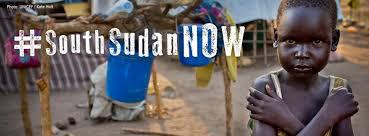
UNICEF is deeply alarmed by the renewed violence in South Sudan and calls on all parties to respect humanitarian principles and provide unrestricted access to civilians in need.
After nearly three years of war, civilians are bearing the brunt of the conflict in South Sudan, with women and children facing the greatest dangers and hardships. As the country marks its fifth year of independence, the lives of millions of children continue to be marked by suffering and upheaval.
“Children and their families in South Sudan have suffered enough from violence, displacement and killings in this brutal conflict. It is time that peace becomes more than agreements on paper, but a reality for those who are most vulnerable,” said UNICEF Regional Director for Eastern and Southern Africa, Leila Pakkala.
At the United Nations’ Protection of Civilians site in Juba, which was impacted by the outbreak of hostilities on the night of July 8, UNICEF and partners continue their support to the displaced population. Teams on the ground are scaling up efforts to provide access to health and nutrition services, drinking water and sanitation to existing and newly displaced families.
The events in Juba come shortly after escalation of conflict in other parts of the country in recent weeks, disrupting lives and livelihoods. In Wau, where fighting has displaced at least 70,000 people since the end of June, UNICEF and partners are working around the clock to provide assistance to children and their families
 FR
FR EN
EN AR
AR








